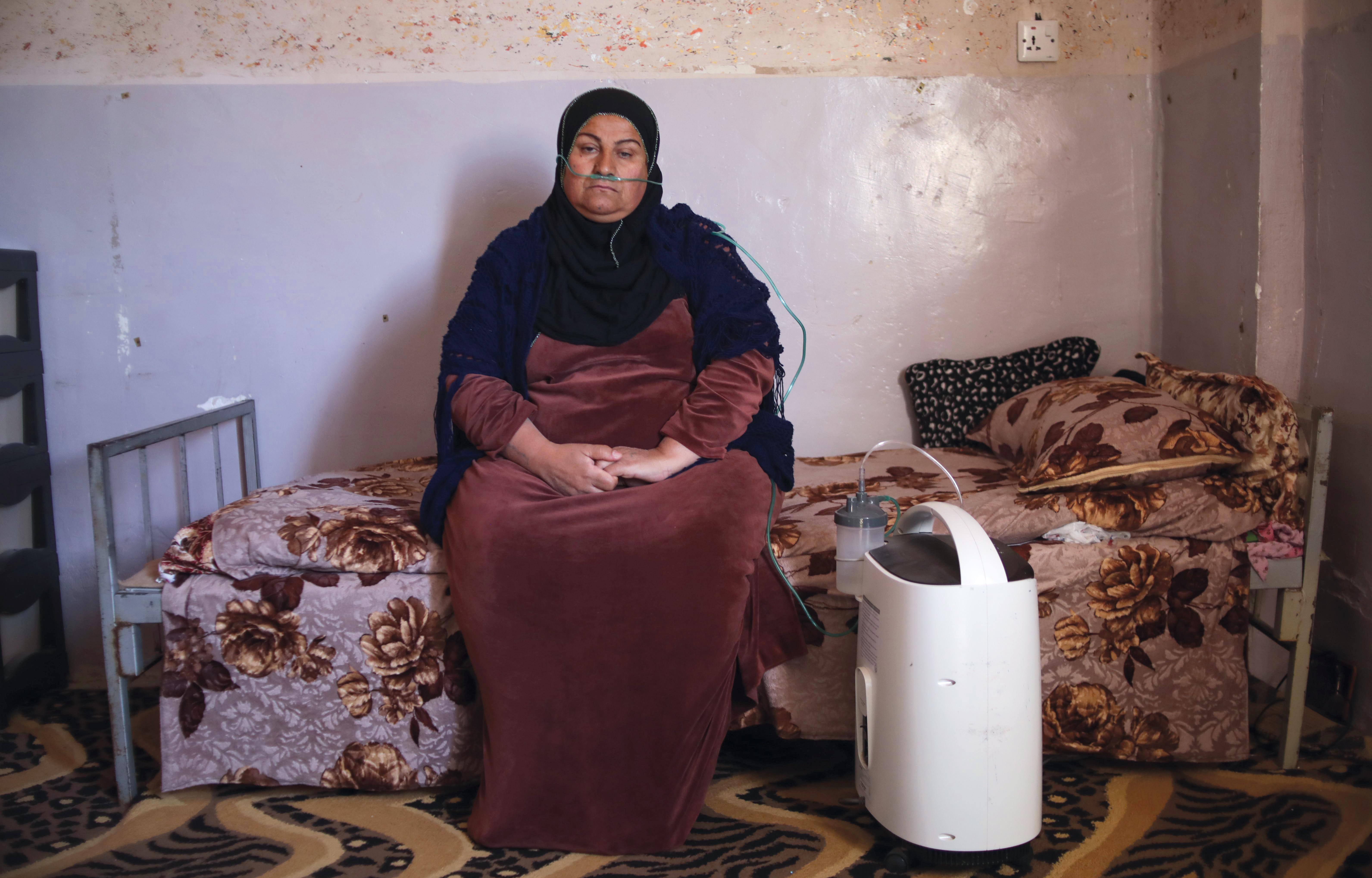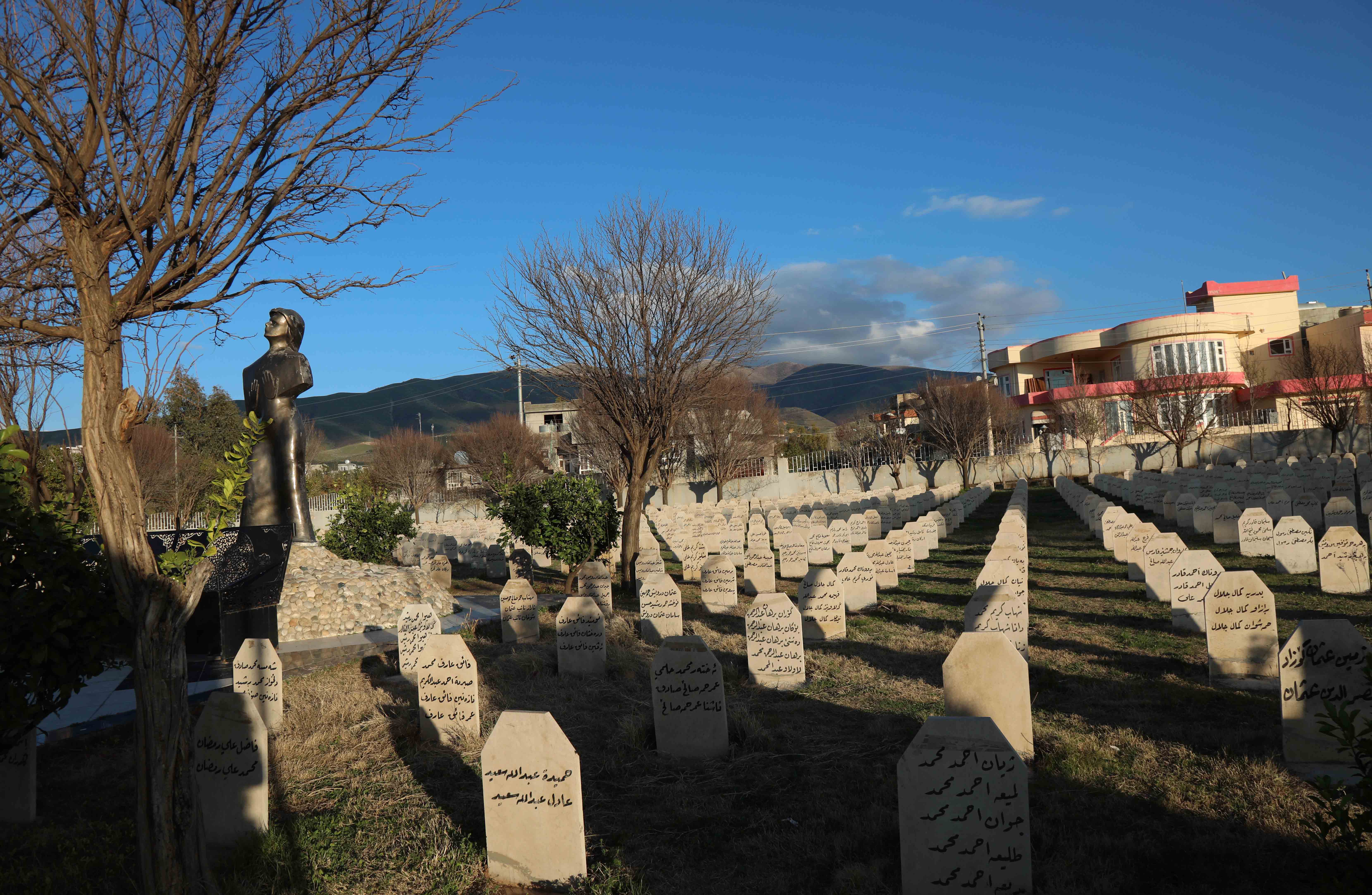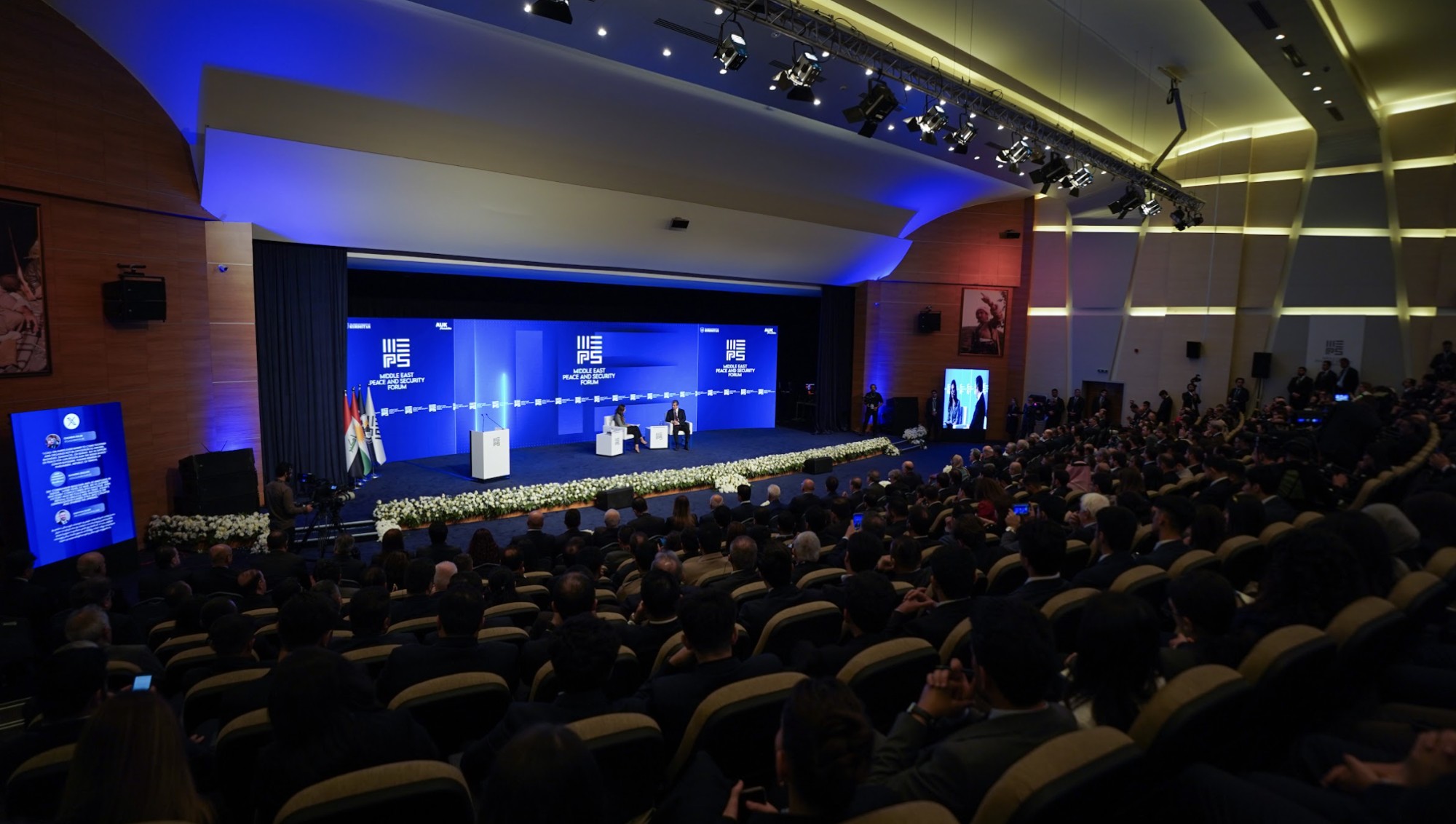Halala Jalal was only 12 years old when the Iraqi regime of Saddam Hussein attacked the Kurdish city of Halabja with chemical weapons. Miraculously, Halala managed to survive the attack, but she has been sick ever since. She can't breathe without the respirator. She spends multiple hours a day in her one-bedroom home Halabja dependent on an oxygen tank.
This month marks the 35th anniversary of the chemical attack on Halabja and the 20th anniversary of the removal of Saddam Hussein’s regime by the allied forces.
The Halabja poisonous gas attack occurred from March 15-19, 1988, amidst the Iran-Iraq War. The chemical weapons attack killed 5000 people, half of them children, and wounded many hundreds more.
The wounded are still suffering – some are paralyzed for life and others are afflicted with chronic coughing and are experiencing a life of gradual death.

There is a cemetery dedicated to the victims of the Halabja attack, at the gate of which is written the following: “Members of Baath Party (Saddam’s Party) are not allowed to enter. The cemetery was built so that future generations would not forget this heinous crime.
According to Luqman Abdulqader, president of an association for the victims of the Halabja chemical attacks, there are 835 people in the Kurdistan region who are still suffering from Saddam's chemical attacks, with some of them in critical condition.
Luqman, one of the victims who lost six family members in the attack including his wife, said that the people of Halabja were overjoyed when Saddam was deposed. "There is nothing more joyful than seeing your oppressor fall in front of your eyes," Luqman told Kurdistan Chronicle.
After the regime was deposed, the people of Halabja expected justice to prevail and compensation to be provided, but their hopes were dashed.

"The mentality of the current rulers in Baghdad is not dissimilar to that of Saddam's regime. They do not recognize Kurds as their own citizens and are unwilling to apologize for the genocide against Halabja," said Luqman.
Luqman has met with leaders from Baghdad on several occasions in Baghdad and Halabja, but he believes they are unconcerned about the people of Halabja and their plight.
We had high hopes for Baghdad becoming the nation's capital, but as Luqman put it, "we quickly learned that it does not care about our peoples' interests."
For the victims, justice entails not only bringing Saddam and his aides to justice, but also bringing the international corporations that assisted Saddam in obtaining chemical weapons to justice.

For more than a decade, the Halabja victims' association has collaborated with international lawyers to force the companies from Germany, the Netherlands, and France to pay their roles in the crime.
Halala, who was having trouble breathing, gave an explanation. “The tragedy of Halabja is not just significant in Kurdish history; it is a crime that has no place in human history and must never be repeated.”
When Saddam's notorious cousin, Ali Hassan Majid, dubbed "Chemical Ali" by the Kurds, was hanged for his role in gassing 5,000 people in Halabja, there was talk of bringing him to Halabja and hanging him there, but the people of Halabja including Halala fiercely rejected the idea.
“We are not seeking revenge; we just want justice to prevail,” said Halala.
Qassim Khidhir has 15 years of experience in journalism and media development in Iraq. He has contributed to both local and international media outlets.

